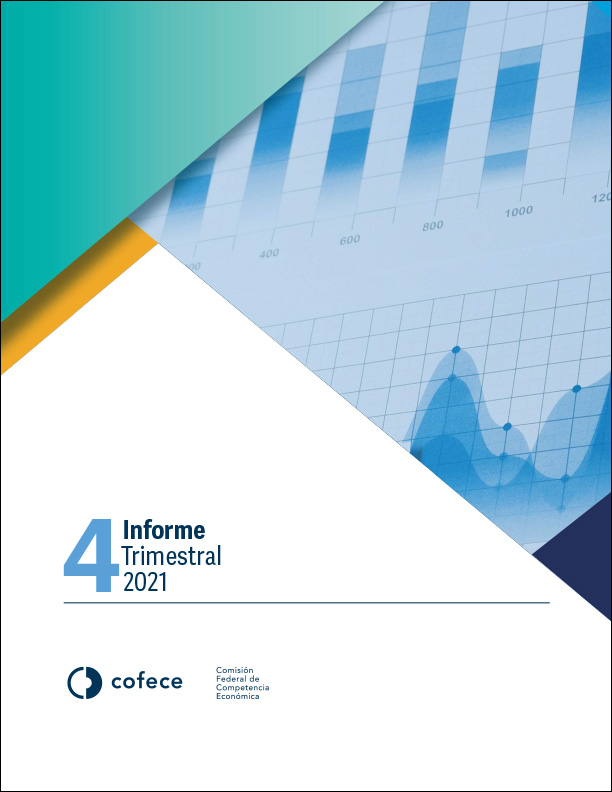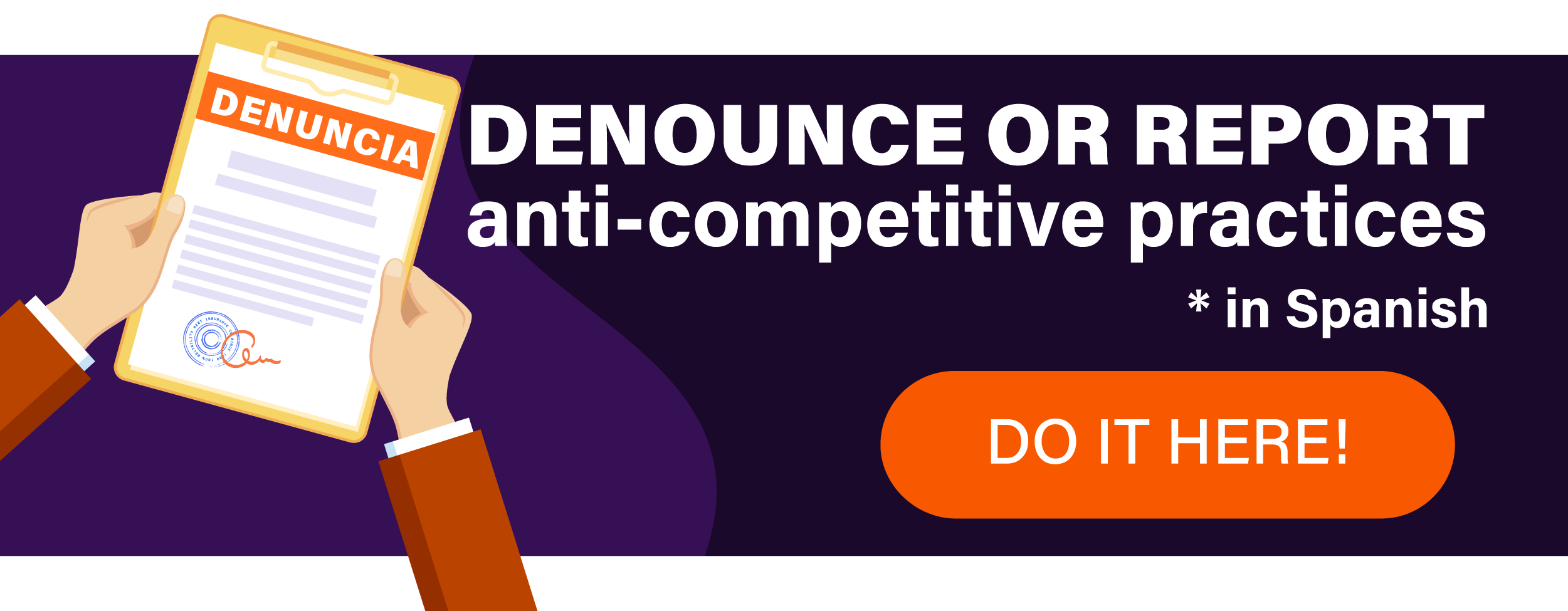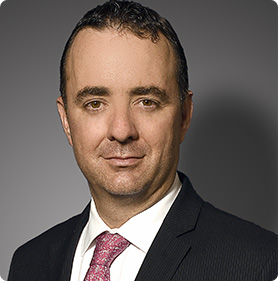¿Qué estás buscando?
¿Qué estás buscando?
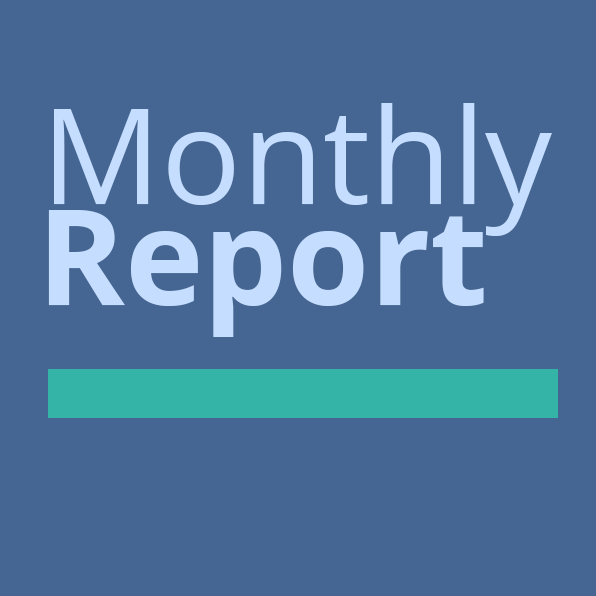
January 2022
In The Front Page
Anticompetitive Practices
Concentrations
Defense Before The Judicial Power
Appointments
Recommended Reading
IN THE FRONT PAGE
The 2022 Annual Work Plan is published
The 2022 Annual Work Plan is published


The Board of the Federal Economic Competition Commission (COFECE or Commission) approved the 2022 Annual Work Plan (PAT, per its initials in Spanish) which considers carrying out 13 strategic actions during the year. These are additional efforts to the activities it carries out to fulfill its constitutional mandate of protecting competition and free market access.
The 2022 PAT is a part of the Institutional Strategic Planning Model through which it prioritizes its actions for its intervention in the market to be more effective, and the efficient use of the allocated resources. In this line the agri-food, energy, transport, health, public procurement and financial sectors are ratified as priority sectors. Additionally, the proposed actions are aligned with the strategic objectives of COFECE as follows:
Effectively enforce the regulation on economic competition: it will conclude four investigations of absolute monopolistic practices, two for relative monopolistic practices or unlawful concentrations and will complete at least four trial-like procedures or procedures related to barriers to competition and essential facilities or, if applicable, resolutions of effective competition.
Actively promote the prevention and correction of anticompetitive market structures and anticompetitive legal frameworks: it will present a preliminary opinion concerning barriers to competition and essential facilities or regarding resolutions on competition conditions, likewise, it will conduct a study on the competition conditions in a specific market.
Position economic competition on the public agenda: it will elaborate two documents, one with the ex-ante evaluations and another one with the ex post results of cases resolved by the Commission. Also, the summer student program will continue, it will promote awards to promote economic competition and will execute the social communication strategy.
Consolidate a state-of-the-art organizational model: it will publish the 2022-2025 Strategic Plan in which it will define the institutional vision, mission, values and objectives for the next four years, it will also prepare the Institutional Performance Evaluation System to measure and quantify progress in the accomplishment of objectives defined in said Plan. On the other hand, it will conduct an external budget and financial audit for the 2021 fiscal year.
By maintaining the exercise of transparency and accountability that it has carried out since its creation, the progress of strategic actions contained in the 2022 PAT will be reported quarterly, to inform the society about its performance, the use of its resources and the results of its actions.
ANTICOMPETITIVE PRACTICES
Possible collusion in the market of industrial gases is investigated

The Investigative Authority of COFECE published the initiation of an ex officio investigation for a possible collusion in the market of the integration, installation, maintenance and commercialization of equipment, accessories and spare parts for the exploitation of industrial gases in national territory (file number IO-001-2021).
The investigated market refers to the necessary infrastructure to exploit the industrial gases that are used in sectors such as energy, health, food and chemical industries, as well as construction and manufacture of advanced electronics, to name a few.

The Investigative Authority of COFECE published the initiation of an ex officio investigation for a possible collusion in the market of the integration, installation, maintenance and commercialization of equipment, accessories and spare parts for the exploitation of industrial gases in national territory (file number IO-001-2021).
The investigated market refers to the necessary infrastructure to exploit the industrial gases that are used in sectors such as energy, health, food and chemical industries, as well as construction and manufacture of advanced electronics, to name a few.
CONCENTRATIONS
Frutas y Hortalizas and a natural person are sanctioned for not notifying a concentration
In November 2020 a natural person acquired certain percentage of representative stocks of the social capital of HBC International, owned by Frutas y Hortalizas de Calidad (Frutas y Hortalizas). The foregoing implied the indirect acquisition of a part Interjet’s assets, since HBC holds a participation in said airline.
Upon detecting this operation, COFECE opened the file (VCN-001-2021) to verify whether the involved economic agents omitted the notification of a concentration when it legally should have been done. However, despite the fact that those involved in this procedure were timely informed they did not submitted statements, evidence or arguments to defend themselves against possible non-compliance, so the analysis was conducted with the available information, which made it impossible for COFECE to assess the impact that the operation would have on the markets and thereby prevent, if applicable, possible harms and/or risks to the process of competition and free market access.
Consequently, the Board imposed a fine on Frutas y Hortalizas and a natural person for a total of two million 345 thousand 760 Mexican pesos for having omitted the notification of a concentration before carrying it out, as established in the Federal Economic Competition Law (LFCE, per its initials in Spanish) and informed them that the operation would not generate legal effects, nor could it be registered in the corporate books, be formalized through a public document, or recorded in the Public Registry of Commerce until it has, if it is appropriate, authorization from COFECE.

In November 2020 a natural person acquired certain percentage of representative stocks of the social capital of HBC International, owned by Frutas y Hortalizas de Calidad (Frutas y Hortalizas). The foregoing implied the indirect acquisition of a part Interjet’s assets, since HBC holds a participation in said airline.
Upon detecting this operation, COFECE opened the file (VCN-001-2021) to verify whether the involved economic agents omitted the notification of a concentration when it legally should have been done. However, despite the fact that those involved in this procedure were timely informed they did not submitted statements, evidence or arguments to defend themselves against possible non-compliance, so the analysis was conducted with the available information, which made it impossible for COFECE to assess the impact that the operation would have on the markets and thereby prevent, if applicable, possible harms and/or risks to the process of competition and free market access.
Consequently, the Board imposed a fine on Frutas y Hortalizas and a natural person for a total of two million 345 thousand 760 Mexican pesos for having omitted the notification of a concentration before carrying it out, as established in the Federal Economic Competition Law (LFCE, per its initials in Spanish) and informed them that the operation would not generate legal effects, nor could it be registered in the corporate books, be formalized through a public document, or recorded in the Public Registry of Commerce until it has, if it is appropriate, authorization from COFECE.
DEFENSE BEFORE THE JUDICIAL POWER
The sanction imposed to K-Line is rendered without effects and the fine for Kawasaki Kisen is confirmed, companies that participated in an international cartel
In June 2017, the Commission accredited that a group of firms that provided international maritime transport services to manufacturers in the automotive sector, entered into collusive agreements to segment the maritime routes that had Mexico as a point of origin or destination, as well as Argentina, Brazil, Chile, Japan, Thailand, Indonesia and Belgium. The national ports involved were: Altamira, Veracruz, Manzanillo, Mazatlán and Lázaro Cárdenas, where these economic agents carried out cargo loading and unloading operations to extract or enter units. With the foregoing they reduced competitive pressure and increased the costs of the services they provided to manufacturers in the automotive sector.
Some of the sanctioned economic agents went before the Judicial Power of the Federation (PJF, per its initials in Spanish) for the legality of COFECE’s actions to be reviewed. In this regard, the Second Collegiate Court on Administrative Matters Specialized in Economic Competition, Broadcasting and Telecommunications granted an amparo to K-Line and with this left without effects the fine of 82 million 200 thousand Mexican pesos that was imposed in the resolution (file number IO-005-2013), where it proved the existence of absolute monopolistic practices in the market of maritime transport services of automotive vehicles and wheeled machinery for construction and agriculture in the national territory.
The Court’s decision considers that K-Line and the firm Kawasaki Kisen¸ that was also sanctioned in this matter, belong to the same economic interest group, therefore the PJF considered that they did not participated as competitors in the collusion, since the acts carried out to segment the market favored whom exerts the control of said group. In that sense, the anticompetitive conducts generated a common and not an individual benefit. Thereby, it only confirmed one of the two fines.

In June 2017, the Commission accredited that a group of firms that provided international maritime transport services to manufacturers in the automotive sector, entered into collusive agreements to segment the maritime routes that had Mexico as a point of origin or destination, as well as Argentina, Brazil, Chile, Japan, Thailand, Indonesia and Belgium. The national ports involved were: Altamira, Veracruz, Manzanillo, Mazatlán and Lázaro Cárdenas, where these economic agents carried out cargo loading and unloading operations to extract or enter units. With the foregoing they reduced competitive pressure and increased the costs of the services they provided to manufacturers in the automotive sector.
Some of the sanctioned economic agents went before the Judicial Power of the Federation (PJF, per its initials in Spanish) for the legality of COFECE’s actions to be reviewed. In this regard, the Second Collegiate Court on Administrative Matters Specialized in Economic Competition, Broadcasting and Telecommunications granted an amparo to K-Line and with this left without effects the fine of 82 million 200 thousand Mexican pesos that was imposed in the resolution (file number IO-005-2013), where it proved the existence of absolute monopolistic practices in the market of maritime transport services of automotive vehicles and wheeled machinery for construction and agriculture in the national territory.
The Court’s decision considers that K-Line and the firm Kawasaki Kisen¸ that was also sanctioned in this matter, belong to the same economic interest group, therefore the PJF considered that they did not participated as competitors in the collusion, since the acts carried out to segment the market favored whom exerts the control of said group. In that sense, the anticompetitive conducts generated a common and not an individual benefit. Thereby, it only confirmed one of the two fines.
APPOINTMENTS
Head of the UPVAI and General Director of Planning and Evaluation are appointed
The Acting Chair Commissioner due to a vacancy, Brenda Gisela Hernández Ramírez, appointed José Nery Pérez Trujillo as Head of the Planning, Liaison and International Affairs Unit (UPVAI, per its initials in Spanish), who took office since the first day of January of this year.
Pérez Trujillo is an economist from the Instituto Tecnológico de Estudios Superiores de Monterrey (Tec de Monterrey) and M.A. in Public Policy by the University of Chicago. He has 20 years of professional experience in the areas of competition and regulation, market analysis, planning and evaluation. In 2012 he joined the Federal Competition Commission as Deputy General Director of Planning and Evaluation and afterwards he was appointed General Director of the same area, position he held until last December 31.
In this new assignment he will be in charge of the planning and evaluation agenda, of the Commission’s national and international liaison, as well as of the promotion and outreach of competition culture.
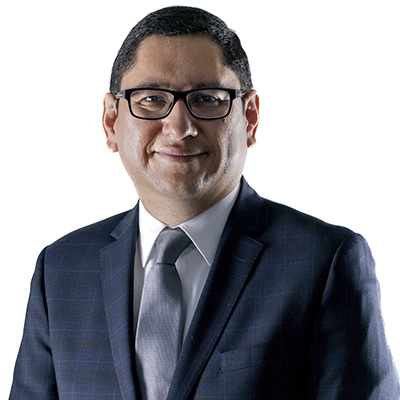
The Acting Chair Commissioner due to a vacancy, Brenda Gisela Hernández Ramírez, appointed José Nery Pérez Trujillo as Head of the Planning, Liaison and International Affairs Unit (UPVAI, per its initials in Spanish), who took office since the first day of January of this year.
Pérez Trujillo is an economist from the Instituto Tecnológico de Estudios Superiores de Monterrey (Tec de Monterrey) and M.A. in Public Policy by the University of Chicago. He has 20 years of professional experience in the areas of competition and regulation, market analysis, planning and evaluation. In 2012 he joined the Federal Competition Commission as Deputy General Director of Planning and Evaluation and afterwards he was appointed General Director of the same area, position he held until last December 31.
In this new assignment he will be in charge of the planning and evaluation agenda, of the Commission’s national and international liaison, as well as of the promotion and outreach of competition culture.
The Head of the UPVAI appointed Karen Aguilar Zamora as General Director of Planning and Evaluation, who took office as of January 16.
Aguilar Zamora is an economist from the Tecnológico Autónomo de México (ITAM), B.A. in law from the Universidad Nacional Autónoma de México (UNAM), and has more than eight years of experience in economic competition and regulation.
The public official joined COFECE in 2014 as Area Coordinator of Concentrations, later she was a part of the Technical Secretariat of this Commission where she served as Executive Director of Competition Analysis. In her new assignment she will be in charge of the planning and evaluation agenda.
We congratulate Karen Aguilar and José Nery Pérez on their appointments and wish them success in the responsibilities entrusted to them.

The Head of the UPVAI appointed Karen Aguilar Zamora as General Director of Planning and Evaluation, who took office as of January 16.
Aguilar Zamora is an economist from the Tecnológico Autónomo de México (ITAM), B.A. in law from the Universidad Nacional Autónoma de México (UNAM), and has more than eight years of experience in economic competition and regulation.
The public official joined COFECE in 2014 as Area Coordinator of Concentrations, later she was a part of the Technical Secretariat of this Commission where she served as Executive Director of Competition Analysis. In her new assignment she will be in charge of the planning and evaluation agenda.
We congratulate Karen Aguilar and José Nery Pérez on their appointments and wish them success in the responsibilities entrusted to them.
RECOMMENDED READING
2021 Fourth Quarterly Report
Accountability document about the activities carried out by COFECE for the fulfillment of the constitutional mandate.
BY THE NUMBERS
BY THE NUMBERS
In January, the Commission handled 101 issues, of which 61 correspond to concentrations, 30 to procedures for monopolistic practices and prohibited concentrations, 3 are related to special procedures1] and 7 are opinions on tender processes, concessions or permits.
Complaints, investigations and trial-like procedures
- Follow-up was made to 7 complaints for anticompetitive conducts, 4 were non applicable, the rest are currently under analysis.
- 19 investigations of monopolistic practices were followed-up, all are ongoing.
- Progress is being made in 4 trial-like procedures, that are being processed.
- 2 procedures for barriers to competition are being processed.
- 1 case to declare competition conditions is still in process.
Concentrations
- 61 concentrations were reviewed, of which 11 were authorized2, the remaining 50 are still under analysis.
- The amount of the authorized operations is of 202 thousand 993 million Mexican pesos.
Opinions
- Within the framework of the COFECE-Cofemer agreement, 1 opinion was issued on a regulation project contrary to competition.
Amparo trials
- 375 indirect amparo trials are currently being processed, of which 281 correspond to the matters of economic competition, 5 were granted, 1 was denied and 2 were dismissed.





